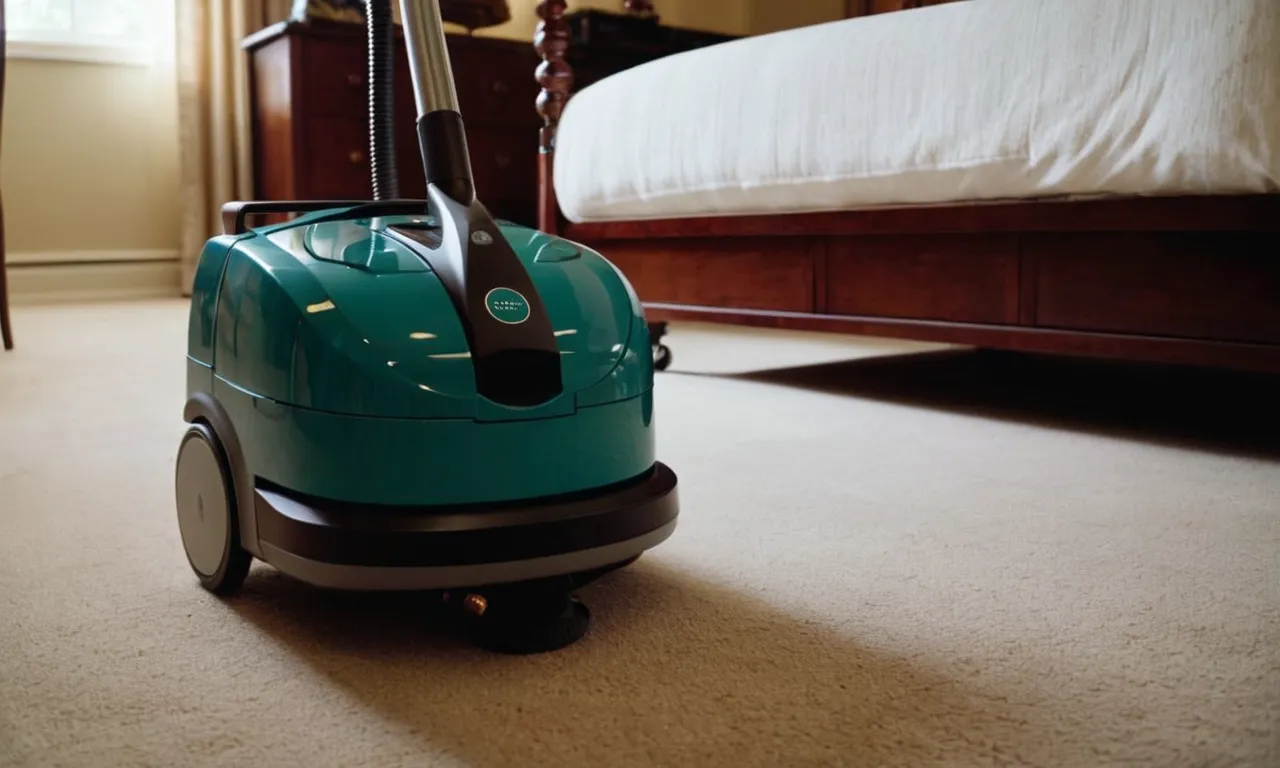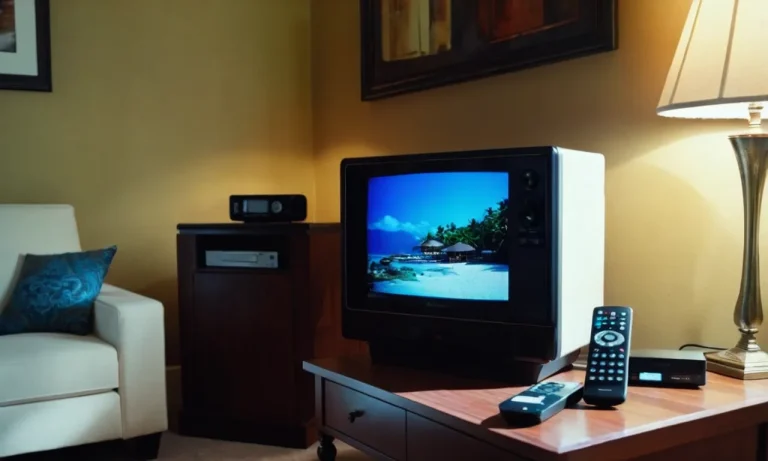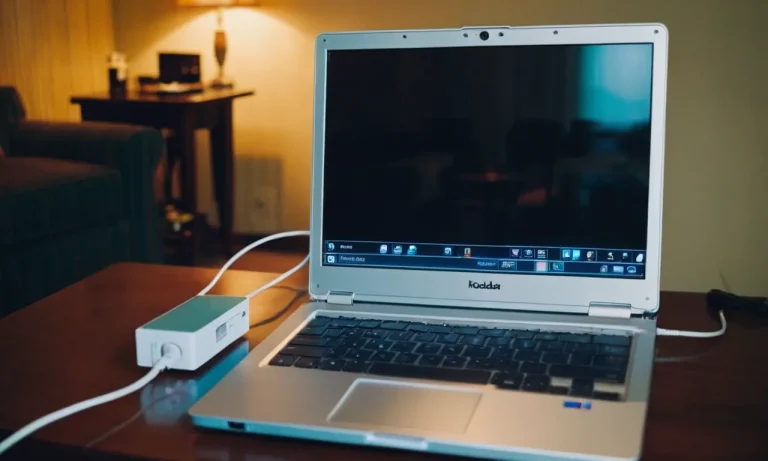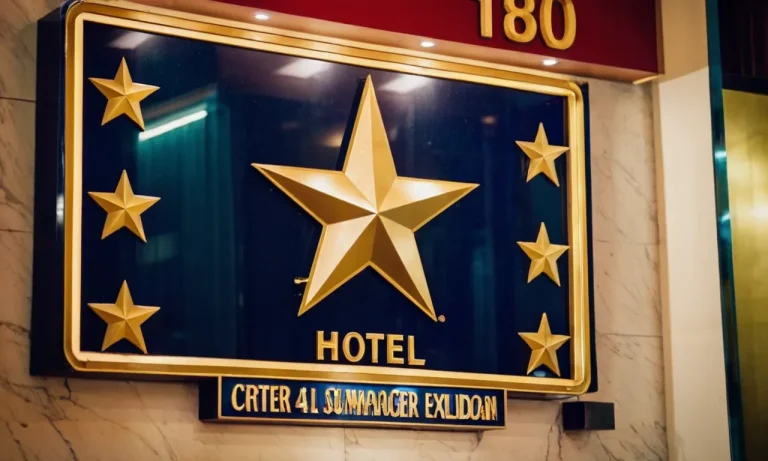What Are Hotel Room Cleaners Called? A Comprehensive Guide
Have you ever wondered about the unsung heroes who keep hotel rooms spotless and inviting for guests? The individuals responsible for this crucial task are known by various titles, each reflecting the importance of their role in the hospitality industry.
If you’re short on time, here’s a quick answer to your question: Hotel room cleaners are commonly referred to as housekeepers, room attendants, or cleaning staff.
In this comprehensive article, we’ll delve into the different titles used for hotel room cleaners, their responsibilities, and the significance of their work in ensuring a pleasant and hygienic experience for travelers.
We’ll also explore the training and qualifications required for these essential roles, as well as the challenges they face in maintaining high standards of cleanliness and guest satisfaction.
Common Titles for Hotel Room Cleaners
In the hospitality industry, the individuals responsible for maintaining the cleanliness and orderliness of hotel rooms are known by various titles. These hardworking professionals play a crucial role in ensuring guests have a comfortable and enjoyable stay.
Here are some of the most common titles for hotel room cleaners:
Housekeeper
The term “housekeeper” is a broad title that encompasses various cleaning and maintenance duties within a hotel or lodging establishment. Housekeepers are responsible for cleaning guest rooms, making beds, replenishing amenities, and ensuring the overall tidiness of the assigned areas.
They may also perform light maintenance tasks, such as changing lightbulbs or reporting any maintenance issues to the appropriate department.
Room Attendant
Room attendants, also known as room maids or room cleaners, are specifically focused on the cleaning and upkeep of guest rooms. Their primary responsibilities include vacuuming, dusting, cleaning bathrooms, making beds with fresh linens, and restocking supplies like towels and toiletries.
Room attendants work diligently to ensure that each room meets the hotel’s high standards of cleanliness and presentation.
Cleaning Staff
The term “cleaning staff” is a broad umbrella term that encompasses various roles related to maintaining the cleanliness of a hotel. This can include room attendants, public area cleaners, laundry attendants, and other specialized cleaning positions.
The cleaning staff works together as a team to ensure that the entire hotel premises, from guest rooms to common areas, are kept spotless and welcoming for guests.
Guest Room Attendant
The title “guest room attendant” is a more specific term used to describe individuals who focus solely on the cleaning and maintenance of guest rooms. Their responsibilities are similar to those of room attendants, but the term “guest room attendant” emphasizes their role in ensuring a comfortable and inviting space for hotel guests.
These professionals take pride in their work and strive to provide an exceptional experience for every guest.
It’s worth noting that while these titles are common, some hotels may use different terminology or have additional specialized roles within their housekeeping departments. Regardless of the specific title, the work of hotel room cleaners is invaluable in maintaining the high standards of cleanliness and hospitality that guests expect.
According to a survey by the American Hotel & Lodging Association, 94% of guests rank cleanliness as one of the most important factors when choosing a hotel, highlighting the significance of these hardworking professionals. 😊
Responsibilities of Hotel Room Cleaners
Hotel room cleaners, also known as housekeepers or room attendants, play a crucial role in ensuring a comfortable and hygienic experience for guests. Their responsibilities are diverse and demanding, requiring a keen eye for detail and a commitment to maintaining high standards of cleanliness.
Cleaning and Sanitizing Guest Rooms
The primary responsibility of hotel room cleaners is to thoroughly clean and sanitize guest rooms. This includes tasks such as making beds, vacuuming carpets, dusting surfaces, cleaning bathrooms, and disinfecting high-touch areas.
According to a study by the American Hotel & Lodging Association, the average hotel room takes approximately 30 minutes to clean, but this can vary depending on the size and condition of the room. To ensure a fresh and inviting atmosphere, cleaners must adhere to strict protocols and use industry-approved cleaning products and techniques.
🧼💯
Restocking Amenities
Hotel room cleaners are responsible for replenishing amenities and supplies in guest rooms. This includes restocking items such as towels, toiletries, coffee and tea supplies, and other consumables. They must ensure that each room is fully stocked and ready for the next guest’s arrival.
Attention to detail is crucial, as guests expect a consistent and well-appointed experience. 😊
Maintaining Cleanliness Standards
Maintaining cleanliness standards is an ongoing responsibility for hotel room cleaners. They must adhere to the hotel’s policies and procedures, ensuring that each room meets or exceeds the expected level of cleanliness.
This may involve conducting inspections, following checklists, and reporting any issues or concerns to supervisors. According to a survey by TripAdvisor, cleanliness is one of the top factors influencing guest satisfaction and hotel ratings. Therefore, hotel room cleaners play a vital role in upholding the reputation and success of the establishment.
Reporting Maintenance Issues
During the cleaning process, hotel room cleaners may encounter maintenance issues or defects in guest rooms. It is their responsibility to report these issues promptly to the appropriate maintenance or engineering staff.
This could include broken fixtures, leaks, malfunctioning appliances, or any other issues that require attention. By identifying and reporting these problems promptly, hotel room cleaners contribute to the overall guest experience and help maintain the property in top condition. 👏
Training and Qualifications for Hotel Room Cleaners
Becoming a hotel room cleaner, also known as a housekeeper or room attendant, doesn’t typically require a formal education or specialized training. However, there are certain skills and qualifications that are essential for success in this role.
On-the-job training, attention to detail, physical stamina, and effective time management are crucial for hotel room cleaners.
On-the-Job Training
Most hotel room cleaners receive on-the-job training from experienced staff members or supervisors. This training covers the proper techniques for cleaning guest rooms, making beds, restocking supplies, and using cleaning equipment and products.
It also includes guidelines on maintaining hygiene standards, handling guest requests, and following safety protocols. According to a survey by the American Hotel & Lodging Association, over 80% of hotels provide comprehensive on-the-job training for housekeeping staff.
Certifications and Courses
While not mandatory, some hotels may encourage or require their room cleaners to obtain certifications or complete training courses. These can cover topics such as customer service, housekeeping procedures, and safety regulations.
Organizations like the Emerit offer certifications specifically designed for housekeeping professionals. Additionally, community colleges and vocational schools often offer short-term courses in hospitality housekeeping.
Attention to Detail
Hotel room cleaners must have an exceptional eye for detail. They are responsible for ensuring that every corner of a guest room is spotless, linens are fresh, and amenities are neatly arranged. Overlooking even the smallest detail can lead to guest dissatisfaction and tarnish the hotel’s reputation.
To excel in this role, cleaners must be meticulous and take pride in their work. As the saying goes, “Cleanliness is next to godliness,” and attention to detail is the key to delivering an exceptional guest experience.
Physical Stamina and Time Management
Hotel room cleaning can be physically demanding, as it involves tasks such as lifting mattresses, pushing heavy carts, and bending and stretching to clean hard-to-reach areas. Cleaners must have the physical stamina to work on their feet for extended periods and handle the rigors of the job.
Furthermore, time management skills are crucial, as they are often responsible for cleaning multiple rooms within a specific timeframe. According to a study by the Bureau of Labor Statistics, hotel room cleaners walk an average of 8-10 miles per day, highlighting the importance of physical fitness in this role.
By combining on-the-job training, attention to detail, physical stamina, and effective time management, hotel room cleaners can provide an exceptional level of cleanliness and comfort for guests. Their dedication and hard work contribute significantly to the overall guest experience and the success of the hotel industry.
Challenges Faced by Hotel Room Cleaners
Hotel room cleaners, also known as housekeepers or room attendants, play a crucial role in maintaining the cleanliness and comfort of guest rooms. However, their job is not without challenges. These hardworking individuals face a variety of obstacles on a daily basis, ranging from tight schedules to handling hazardous materials and dealing with difficult guests.
Tight Schedules and Time Constraints
One of the biggest challenges faced by hotel room cleaners is the tight schedules and time constraints they operate under. With a high turnover of guests, cleaners often have a limited amount of time to thoroughly clean and prepare each room for the next occupant.
According to a study by the American Hotel & Lodging Association, the average room attendant is responsible for cleaning 16 rooms per day, with some cleaning as many as 30 rooms during peak seasons. 😮 This demanding workload can lead to physical and mental exhaustion, as well as potential burnout.
Handling Hazardous Materials
Hotel room cleaners are frequently exposed to various hazardous materials, such as cleaning chemicals, bodily fluids, and potentially infectious waste. Proper training and the use of personal protective equipment (PPE) are essential to mitigate the risks associated with handling these materials.
However, according to a survey by UNITE HERE, a labor union representing hotel workers, many cleaners report inadequate training and lack of proper PPE, putting their health and safety at risk. 😔
Dealing with Difficult Guests
While most hotel guests are respectful and courteous, room cleaners occasionally encounter difficult or uncooperative individuals. These situations can range from guests refusing to vacate the room during cleaning times to encountering rude or aggressive behavior.
Dealing with such guests requires patience, professionalism, and effective communication skills from the cleaners. According to a study by the University of Nevada, Las Vegas, approximately 20% of hotel room cleaners reported experiencing verbal or physical abuse from guests. 😞
Maintaining Consistent Quality Standards
Hotels strive to maintain high standards of cleanliness and quality to ensure guest satisfaction and repeat business. As a result, room cleaners must adhere to strict protocols and procedures to ensure that each room meets the hotel’s standards.
This can be particularly challenging when dealing with high occupancy rates, tight turnaround times, and guests with varying expectations. To help maintain consistency, many hotels provide comprehensive training programs and regular inspections.
However, according to a survey by Hotel Management, nearly 40% of hotel room cleaners reported feeling pressure to cut corners or rush through tasks due to time constraints. 😕
Despite these challenges, hotel room cleaners play an indispensable role in the hospitality industry, ensuring that guests have a comfortable and enjoyable stay. By acknowledging and addressing these obstacles, hotels can better support and empower their cleaning staff, leading to improved job satisfaction, guest experiences, and overall operational efficiency.
Don’t you agree that these hardworking individuals deserve our utmost respect and appreciation? 👏
Conclusion
Hotel room cleaners, regardless of their specific title, play a vital role in the hospitality industry. Their dedication to maintaining pristine and welcoming environments for guests is essential for creating a positive and memorable experience.
From housekeepers to room attendants, these professionals are responsible for a wide range of tasks, including cleaning, sanitizing, restocking amenities, and ensuring that each room meets the highest standards of cleanliness and comfort.
While the job can be physically demanding and time-sensitive, proper training, attention to detail, and a commitment to excellence are crucial for success in this field. By understanding the challenges faced by hotel room cleaners, we can appreciate the hard work and effort they put into ensuring that every guest feels at home during their stay.
As the hospitality industry continues to evolve, the role of hotel room cleaners will remain indispensable, serving as the backbone of a seamless and enjoyable guest experience.








